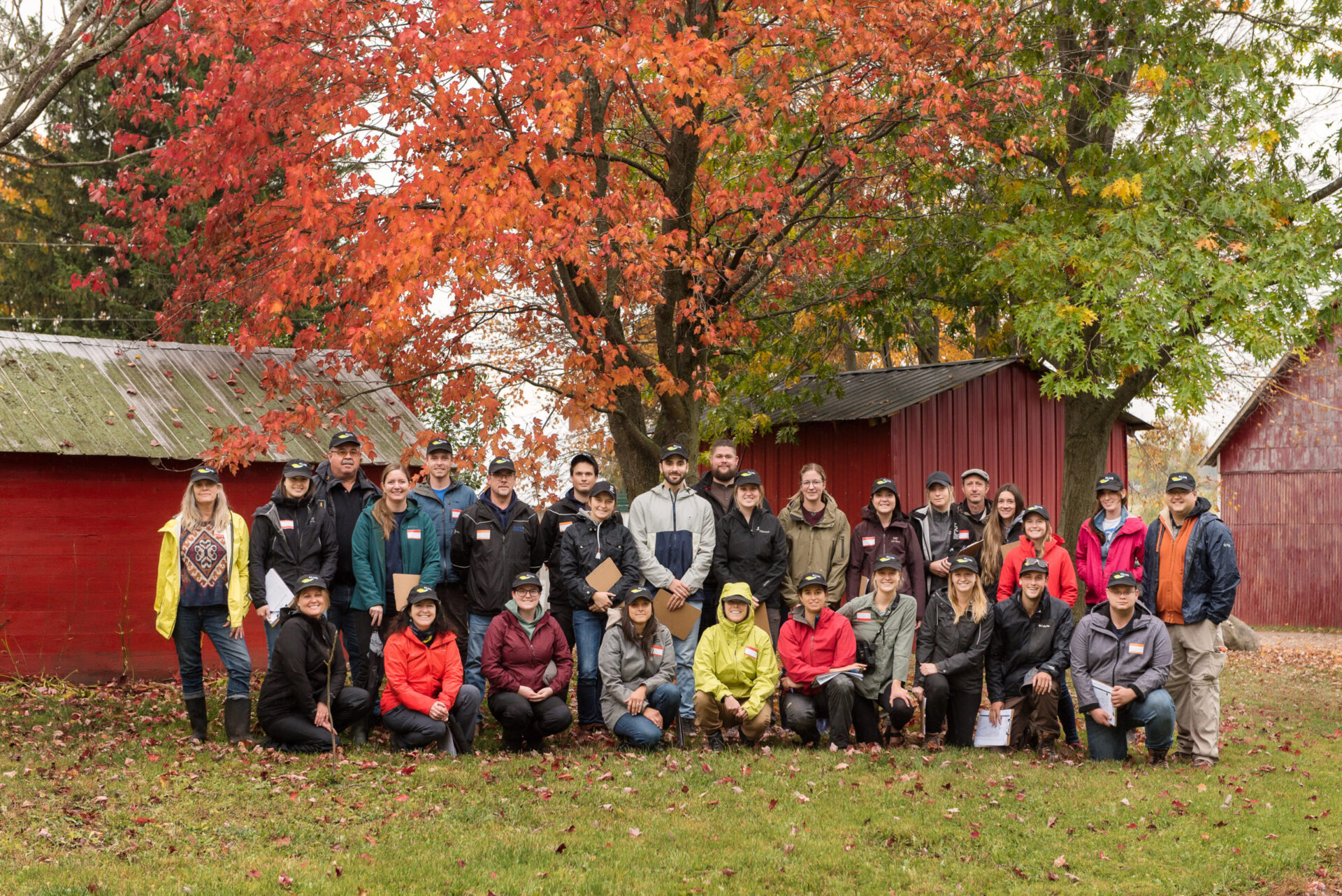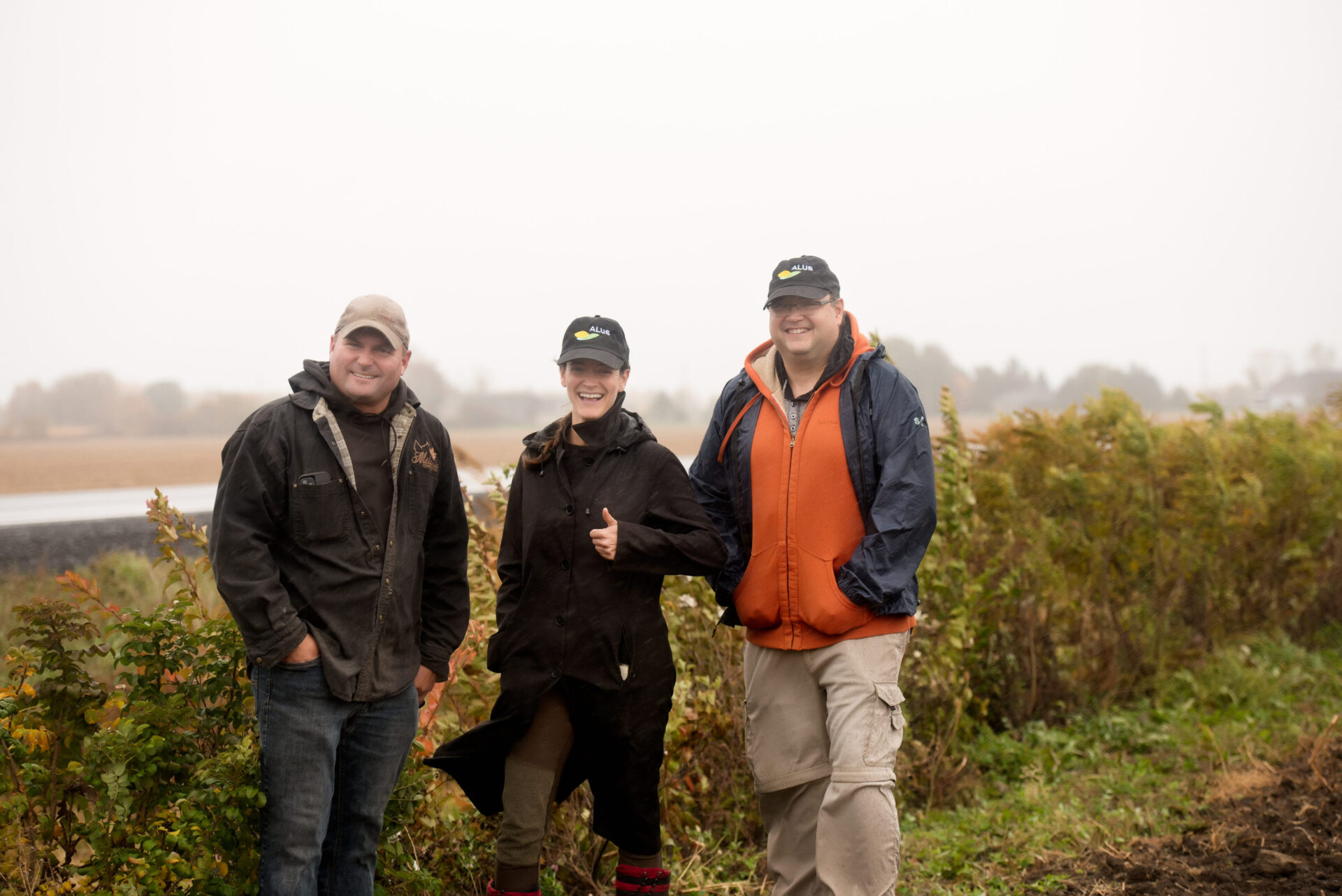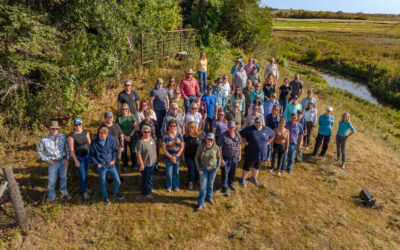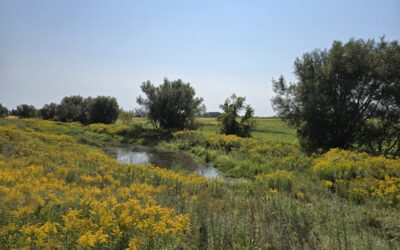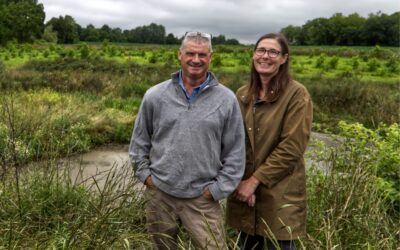ALUS team members met for collaborative engagement and learning at regional 2022 jamborees.
In September and October 2022, ALUS organized three conferences, allowing our team members across the country to get together, tour project sites and discuss our shared mission.
ALUS is proud to be a distributed organization. Team members work from their respective communities throughout Canada. This supports ALUS’ locally focused programming and community impact goals. Events such as the western, prairie and eastern jamborees strengthen the connections between the national team, the local program teams and ALUS participants.
Local ALUS coordinators and PAC members are enacting changes on the ground, while the national staff manages the connections that glue the different local programs together.
Eastern Jamboree
ALUS team members and partners working in the eastern hub made their way to Ottawa for the eastern jamboree. As part of this opportunity to engage in person, the group toured four farms in the Ottawa region. The first stop was at Kirkview Farms to meet Mike and Cora MacGillivray, who primarily raise Lowline Angus (or Aberdeen) cattle, swine, and poultry on roughly 200 acres of land. ALUS participants since 2019, Mike and Cora have also added regenerative agriculture practices to their operation. As part of ALUS, Kirkview Farms introduced 5 acres of windbreaks, a project making habitat with nearly 5000 native trees and shrubs. Even on a rainy fall day, Kirkview Farms was bustling with wildlife and an abundance of insects in the pasture.
The next tour was of participant Marc Bercier’s project sites. The 2020 Dave Reid Award Winner, Marc manages a stunning wetland project in a riparian area and is planning to expand the acreage of this project. His motivation for maintaining and growing his ALUS projects is driven by an ethos of caring for and learning from the land, the water, and his community and his family.
Participants also visited a recently planted edible buffer project implemented by Paul Desrosiers, in the Embrun region. Carefully selected forage is growing well at Paul’s project along the roadway.
Completing the four-stop tour, the team visited the farm of Kurtis Andrews in Metcalfe. In partnership with ALUS, Andrews is in the preliminary process of creating a wetland in a marginal area on his nearly 100-acre farm to support local wildlife populations.
Western Jamboree
In Alberta, ALUS team members met with local coordinators and PAC members from nearly 18 communities to discuss ALUS.
At the western jamboree, the group visited projects in the area of Northern Sunrise County. The tour began with a visit to the Williams Farm. Corinna Williams maintains a 1,200-meter-long eco-buffer established with ALUS in 2017 with 6,500 seedlings of prickly rose, raspberry, wolf willow, red osier dogwood, white birch, and other species. Five years later, this project demonstrates the clear impact of ALUS projects, as it plays a key role in keeping water on the land even during challenging drought conditions in the region.
For their second stop, the group visited Front Porch Farm, home of the Rosendal Family. The Rosendal Family were recognized as the runners-up for the 2022 Dave Reid Award. In 2017, the Rosendals built a large wetland providing natural infrastructure features, ecosystem services and a place for biodiversity.
Prairie Jamboree
Team members from ALUS’ prairie hub met in the municipality of Emerald Park, east of Regina, Saskatchewan for their regional jamboree. Coordinators and PAC members had the chance to connect and share their communities’ challenges and successes with their colleagues and the national team. Together, the national and local teams visited three sites administered by ALUS WUQWATR.
The first site was ALUS participant Dale Sigurdson’s property in the scenic Qu’Appelle Valley. In 2020, the Sigurdsons established an eco-friendly exclusion fence with ALUS. The fence prevents cattle from disturbing sensitive riparian ecosystems. The project helps protect the Qu’Appelle river’s shore from erosion and prevents sediment from entering the river, benefiting the aquatic habitat and water quality downstream.
The second site visited was Bob Wilson’s 2022 exclusion fence project, protecting the riparian area and an adjacent creek. Like many exclusions fence projects, this one benefits the aquatic habitat, providing nutrient reduction, improving habitat, capturing sediment, and providing cleaner water.
Finally, the group visited Warren Wild’s 2017 project. This project was the conversion of marginal cropland to forage. Warren seeded thirty-three acres of marginal cropland to forages and also enhanced wetland, riparian ecosystems and a seasonal stream running through the property.
ALUS is proud to be expanding and supporting even more conservation projects in North America. A core strength of the ALUS model comes from the grassroots, community-led structure of the organization. The jamboree events are imperative to facilitate connection between the communities and the national team that supports the local program delivery.

